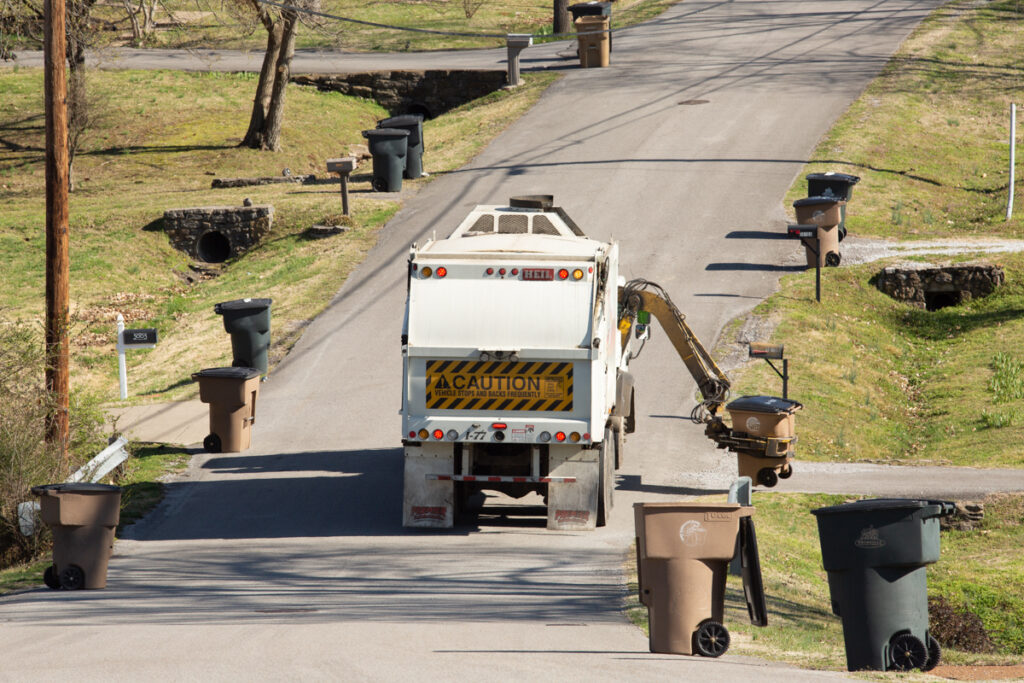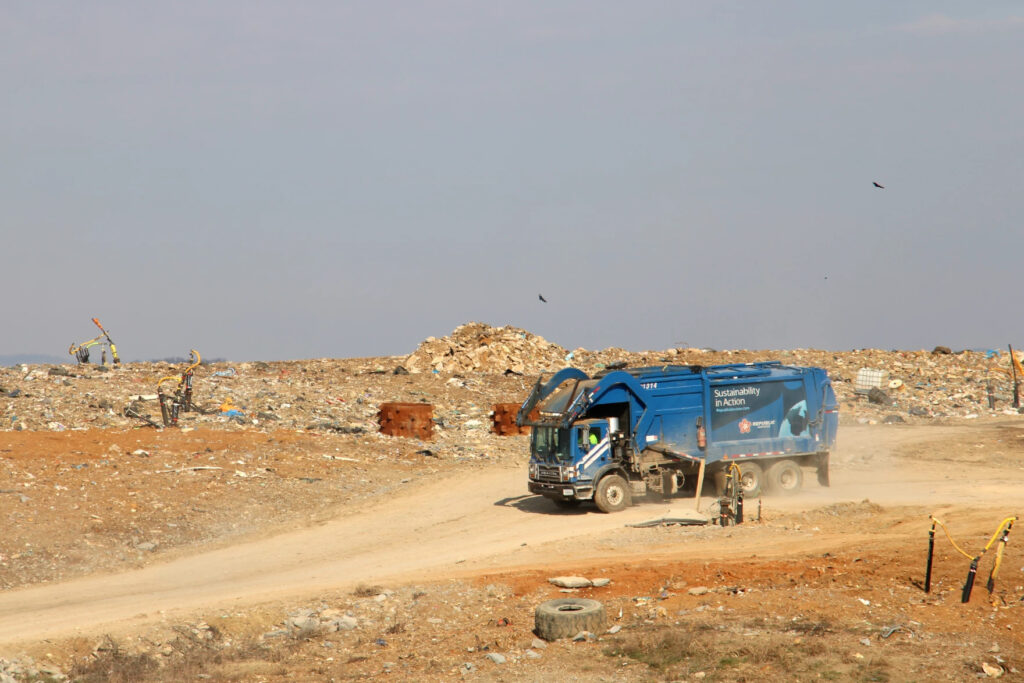
Middle Point Landfill received seven violations from the state this year related to litter and liquid runoff.
In March, the Tennessee Department of Environment and Conservation noted “major violations” in an inspection, due to poor maintenance of a system that handles leachate, the liquid byproduct from landfills that can be harmful, as well as litter control. The landfill received other warnings for “minor violations” between June and September this year.
The city that houses the landfill, Murfreesboro, also issued violations in September for air and water pollution. Throughout 2024 and 2025, a consultant group measured high readings of methane, a potent greenhouse gas.
“In many cases, these emissions are corrected during the required time period,” attorneys from Davis, Johnston and Ringger wrote in a notice on behalf of the city to the landfill. “However, it is indicative of poor operation and maintenance for a landfill to have recurring high levels of surface emissions quarter after quarter.”
The attorneys also noted discharges of leachate containing PFAS, or per- and polyfluoroalkyl substances, into the East Fork Stones River and its tributaries.
 Pierce Gentry WUOT News
Pierce Gentry WUOT NewsA Republic Services trash truck drives over the summit of Middle Point Landfill in Murfreesboro on Friday, Jan. 24, 2025. It is the largest landfill by volume in Tennessee.
Middle Point described the city’s efforts to share this information publicly as “grandstanding.”
“The seven observations issued by the Tennessee Department of Environment and Conservation in 2025 at Middle Point Landfill were considered minor and did not include any enforcement action,” the company said in a statement.
Middle Point rejected responsibility for PFAS pollution because the landfill is “a passive receiver of material containing PFAS,” including from the city’s wastewater sludge.
Will Middle Point survive past 2030?
Middle Point Landfill set up shop in Murfreesboro nearly four decades ago. It is Tennessee’s largest landfill by volume and has been convenient for a lot of residents — accepting trash from about a third of Tennessee counties.
People living near the trash pit, however, have long protested its presence in the community. The city of Murfreesboro has collected at least 4,000 complaints for odor in the past four years.
Middle Point is owned by Republic Services and BFI Waste Systems of Tennessee and has been trying to expand its size since 2021. In 2022, Murfreesboro sued the owners for repeated violations of the Clean Water Act and Clean Air Act.
Earlier this year, the company again proposed an expansion, informally, to the Rutherford County Commission. Republic Services general manager Mike Classen proposed cutting off Nashville in an effort to persuade local officials on expansion.
“We cannot be the place where Nashville disposes most of its trash,” Classen said in February. He suggested the landfill would accept trash for four more years at its current rate of use.
Unlike Murfreesboro, Nashville and other cities have been fairly quiet in this fight — even though, without expansion, the cities would need to find a new solution for trash pickup soon.
Nashville has not announced a backup plan for how to handle its waste. The city last set up a long-term waste plan in 2019, and its current waste disposal contract expires in 2027.
Next year, the city’s waste department will consider alternatives, according to Kendra Abkowitz, director of sustainability for Mayor Freddie O’Connell’s office.
“Metro Waste Services will seek a bid to decide what the future of our trash disposal will look like. Because of our proximity to highways and waterways, there are many options,” Abkowitz told WPLN in an email.
There are solutions beyond primarily relying on Middle Point or other landfills. The city has been experimenting with a residential composting program, which the city recently extended through the end of 2026. State lawmakers Sen. Heidi Campbell and Rep. Bob Freeman, who both represent Nashville, will reintroduce a bill to create new streams of in-state recycling next year. The Tennessee Environmental Council recently helped create a seven-minute documentary about the legislation, called the “Tennessee Waste to Jobs Act.”
At the same time, there are efforts by companies to create new landfills in Tennessee. State lawmakers may consider weakening the power of local governments to block new landfill projects through the “Jackson Law” during the next legislation session. One such fight is now playing out in Scott County.

